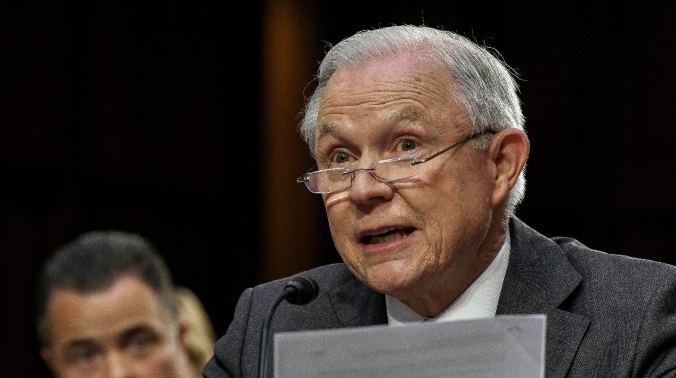Ever since it first passed in the House of Representatives in 2014, the Rohrabacher-Farr amendment has provided the only legal protection at the federal level for medical marijuana businesses and their patients. The law prevents the Department of Justice (which includes the DEA) from spending federal dollars to prosecute medical marijuana businesses or their patients as long as they comply with regulations in their state. This provision has been added to the appropriations bill in each of the past four years, and each time by a wider margin than the year before.
However, because it is a provision that has been tacked on as a rider to the spending bill each year and not an actual law, it must be evaluated and renewed annually to remain in effect.
Yesterday, in a letter obtained by Tom Angell of Massroots.com and verified by The Washington Post, it was revealed that Jeff Sessions has specifically asked Congress not to renew the amendment, allowing him to prosecute medical marijuana businesses and patients in all 29 states where it is currently legal.
In the letter, Sessions state, “I believe it would be unwise for Congress to restrict the discretion of the Department to fund particular prosecutions, particularly in the midst of an historic drug epidemic and potentially long-term uptick in violent crime. The Department must be in a position to use all laws available to combat the transnational drug organizations and dangerous drug traffickers who threaten American lives.”
Medical Marijuana Can Help Fight Opiate Addiction
Although Sessions is correct in stating the United States is in the midst of a drug epidemic, he is off-base on the drug he is choosing to attack. Overwhelming reports coming out of legal cannabis states show a decrease in drug overdose and opioid prescriptions. Ironically, by prosecuting the legal marijuana industry, Jeff Sessions could make the drug epidemic even worse.
One study out of the University of Michigan on 244 chronic pain patients showed a 64% decrease in opiate use among the participants when using cannabis, and 45% reported an improvement in their overall quality of life. The report concluded marijuana should be thoroughly researched as an alternative treatment for chronic addiction.
Sessions goes on to warn about the dangers of smoking marijuana, citing studies regarding teen use and IQ reduction. However, a survey published by the Colorado Department of Public Health shows teen use in legal states is less than the national average and has dropped since prohibition has ended, again invalidating Mr. Sessions’ argument.
Sessions is clearly at odds with the rest of the United States voters on the issue of medical marijuana. A poll published by Quinnipiac University in April showed an overwhelming 94% of Americans approve the use of medical marijuana prescribed by a physician, the highest level of support ever shown by a national survey through Quinnipiac.
Representative Dana Rohrabacher (R-CA) was quoted through a spokesperson:
“Mr. Sessions stands athwart an overwhelming majority of Americans and even, sadly, against veterans and other suffering Americans who we now know conclusively are helped dramatically by medical marijuana.”
Medical marijuana advocates have been waiting for a sign from the Trump administration about how it plans to address the legal cannabis industry. As a candidate, Trump proclaimed that he was “in favor of medical marijuana 100%” and he expressed support for states’ rights to decide on broader legalization initiatives. But the appointment of Sessions as AG, and his subsequent letter to Congress, with its explicit appeal to allow the DOJ to prosecute medical marijuana providers, appears to call that support into question.

